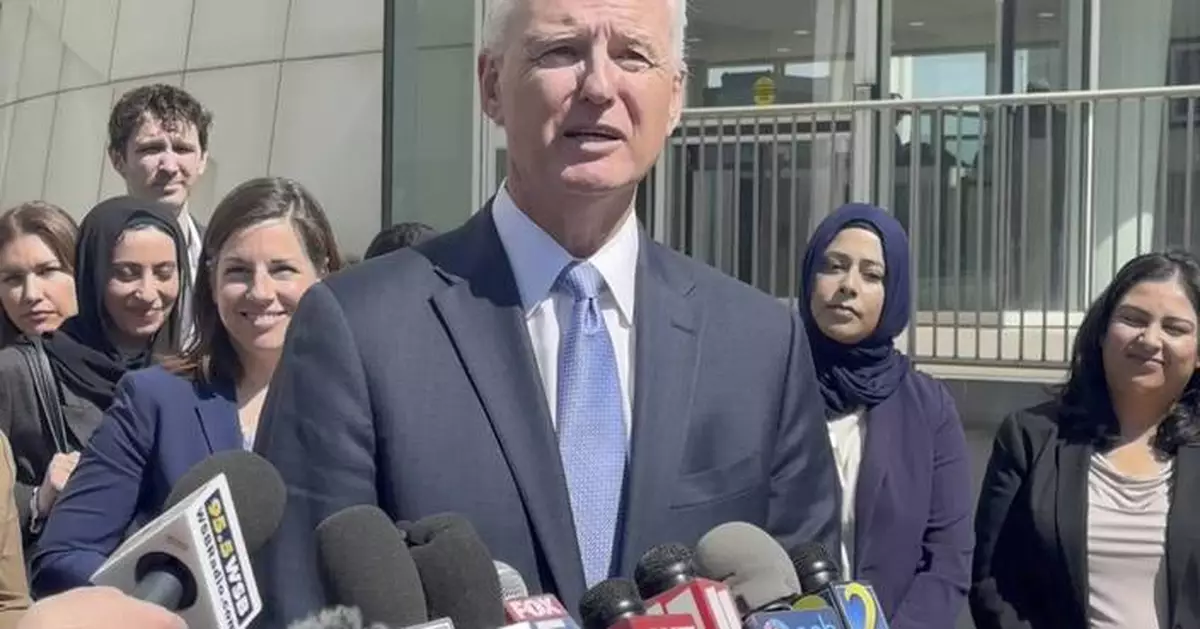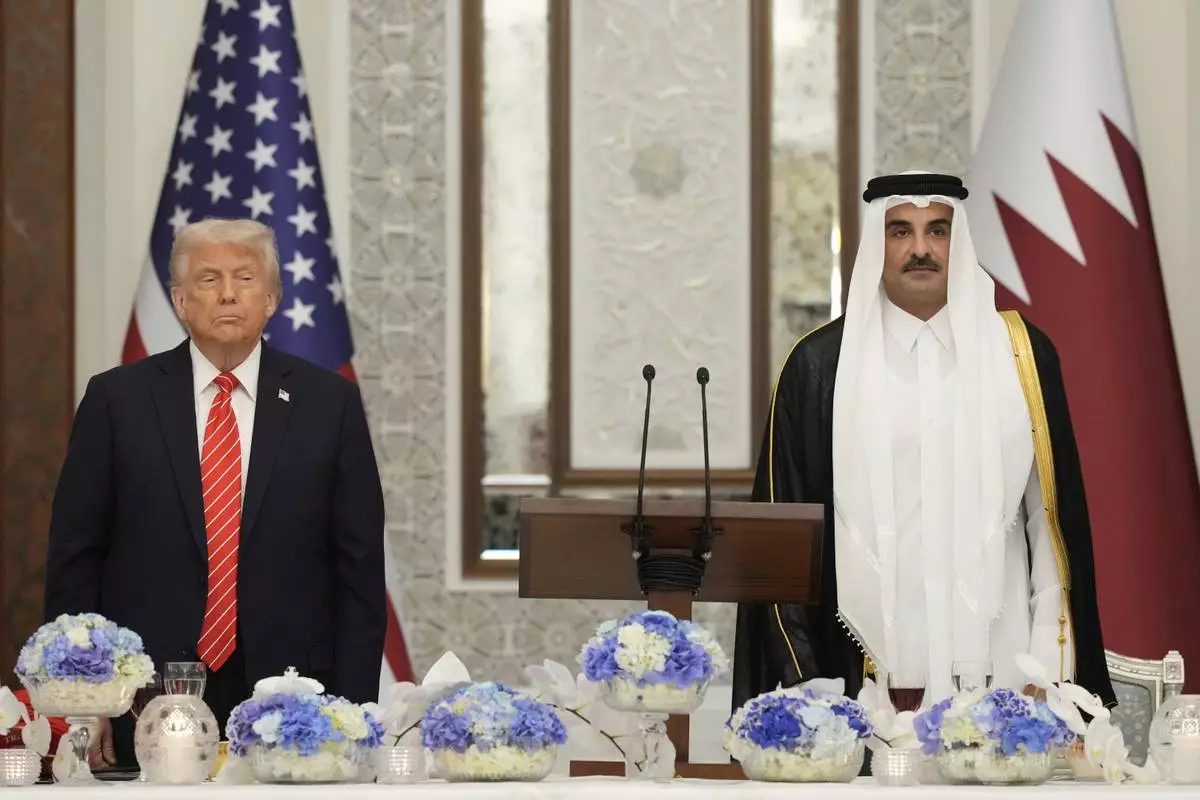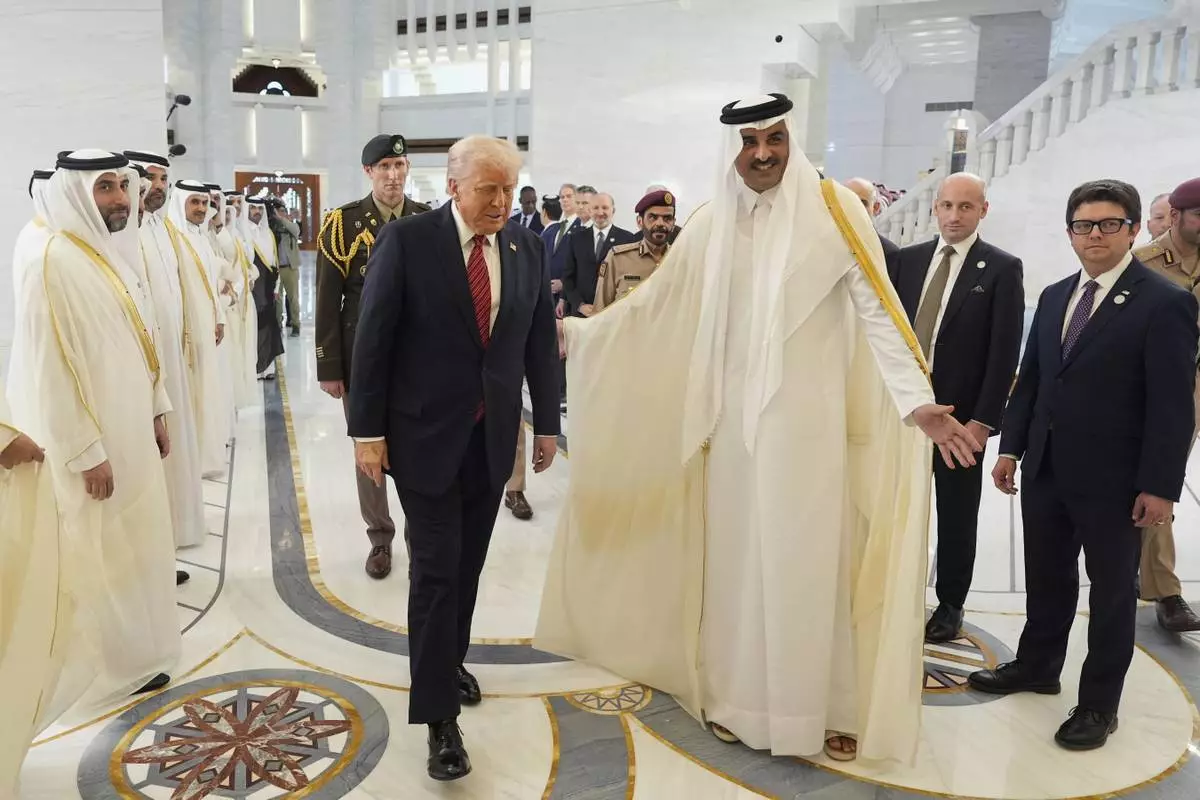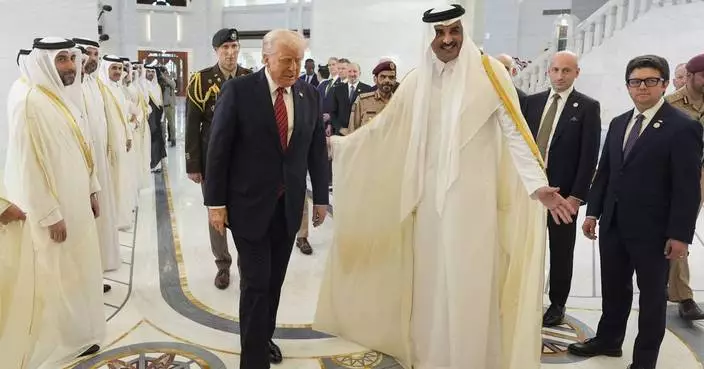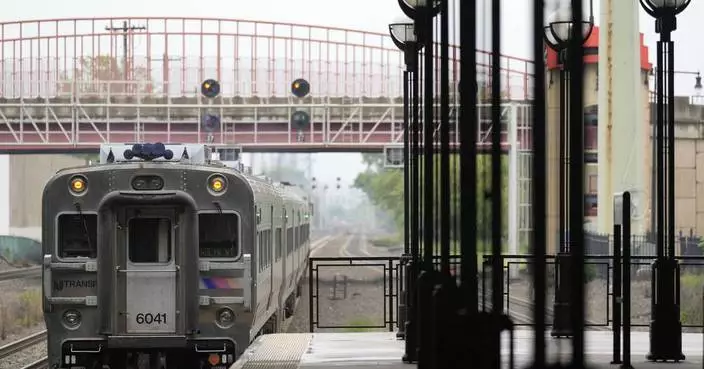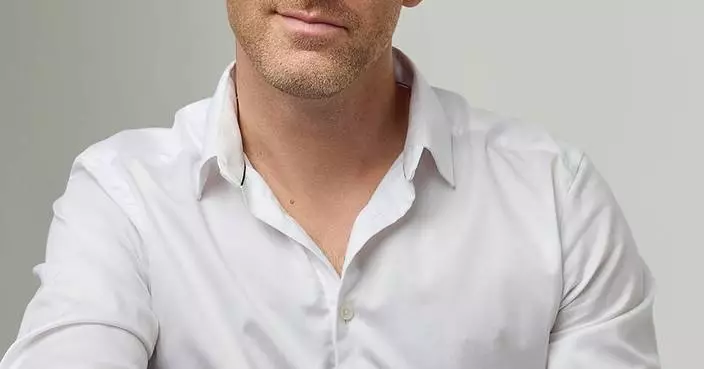ATLANTA (AP) — Anjan Roy was studying with friends at Missouri State University when he got an email that turned his world upside down. His legal status as an international student had been terminated, and he was suddenly at risk for deportation.
“I was in literal shock, like, what the hell is this?” said Roy, a graduate student in computer science from Bangladesh.
At first, he avoided going out in public, skipping classes and mostly keeping his phone turned off. A court ruling in his favor led to his status being restored this week, and he has returned to his apartment, but he is still asking his roommates to screen visitors.
More than a thousand international students have faced similar disruptions in recent weeks, with their academic careers — and their lives in the U.S. — thrown into doubt in a widespread crackdown by the Trump administration. Some have found a measure of success in court, with federal judges around the country issuing orders to restore students' legal status at least temporarily.
In addition to the case filed in Atlanta, where Roy is among 133 plaintiffs, judges have issued temporary restraining orders in states including New Hampshire, Minnesota, Montana, Oregon, Washington and Wisconsin. Judges have denied similar requests in some other cases, saying it was not clear the loss of status would cause irreparable harm.
Secretary of State Marco Rubio said last month the State Department was revoking visas held by visitors who were acting counter to national interests, including some who protested Israel’s war in Gaza and those who face criminal charges. But many affected students said they have been involved only in minor infractions, or it's unclear altogether why they were targeted.
The attorney for Roy and his fellow plaintiffs, Charles Kuck, argued the government did not have legal grounds to terminate the students’ status.
He speculated in court last week the government is trying to encourage these students to self-deport, saying “the pressure on these students is overwhelming.” He said some asked him if it was safe to leave their homes to get food, and others worried they wouldn't receive a degree after years of work or feared their chances of a career in the U.S. were shot.
“I think the hope is they’ll just leave,” Kuck said. “The reality is these kids are invested.”
An attorney for the government, R. David Powell, argued the students did not suffer significant harm because they could transfer their academic credits or find jobs in another country.
At least 1,190 students at 183 colleges, universities and university systems have had their visas revoked or their legal status terminated since late March, according to an Associated Press review of university statements, correspondence with school officials and court records. The AP is working to confirm reports of hundreds more students who are caught up in the crackdown.
In a lawsuit filed Monday by four people on student visas at the University of Iowa, attorneys detail the “mental and financial suffering” they’ve experienced. One graduate student, from India, "cannot sleep and is having difficulty breathing and eating,” the lawsuit reads. He has stopped going to school, doing research or working as a teaching assistant. Another student, a Chinese undergraduate who expected to graduate this December, said his revoked status has caused his depression to worsen to the point that his doctor increased his medication dosage. The student, the lawsuit says, has not left his apartment out of fear of detention.
Roy, 23, began his academic career at Missouri State in August 2024 as an undergraduate computer science student. He was active in the chess club and a fraternity and has a broad circle of friends. After graduating in December, he began work on a master’s degree in January and expects to finish in May 2026.
When Roy received the university's April 10 email on his status termination, one of his friends offered to skip class to go with him to the school’s international services office, even though they had a quiz in 45 minutes. The staff there said a database check showed his student status had been terminated, but they didn’t know why.
Roy said his only brush with the law came in 2021, when he was questioned by campus security after someone called in a dispute at a university housing building. But he said an officer determined there was no evidence of any crime and no charges were filed.
Roy also got an email from the U.S. embassy in Bangladesh telling him his visa had been revoked and that he could be detained at any time. It warned that if he was deported, he could be sent to a country other than his own. Roy thought about leaving the U.S. but decided to stay after talking to a lawyer.
Anxious about being in his own apartment, Roy went to stay with his second cousin and her husband nearby.
“They were scared someone was going to pick me up from the street and take me somewhere that they wouldn’t even know,” Roy said.
He mostly stayed inside, turned off his phone unless he needed to use it, and avoided internet browsers that track user data through cookies. His professors were understanding when he told them he wouldn’t be able to come to classes for a while, he said.
After the judge’s order Friday, he moved back to his apartment. He learned Tuesday his status had been restored, and he plans to return to class. But he’s still nervous. He asked his two roommates, both international students, to let him know before they open the door if someone they don’t know knocks.
The judge’s restoration of his legal status is temporary. Another hearing scheduled for Thursday will determine whether he keeps that status while the litigation continues.
Roy chose the U.S. over other options in Canada and Australia because of the research opportunities and potential for professional connections, and he ultimately wanted to teach at an American university. But now those plans are up in the air.
AP reporters Christopher L. Keller in Albuquerque, New Mexico, and Hannah Fingerhut in Des Moines, Iowa, contributed to this story.
The Associated Press’ education coverage receives financial support from multiple private foundations. AP is solely responsible for all content. Find AP’s standards for working with philanthropies, a list of supporters and funded coverage areas at AP.org.
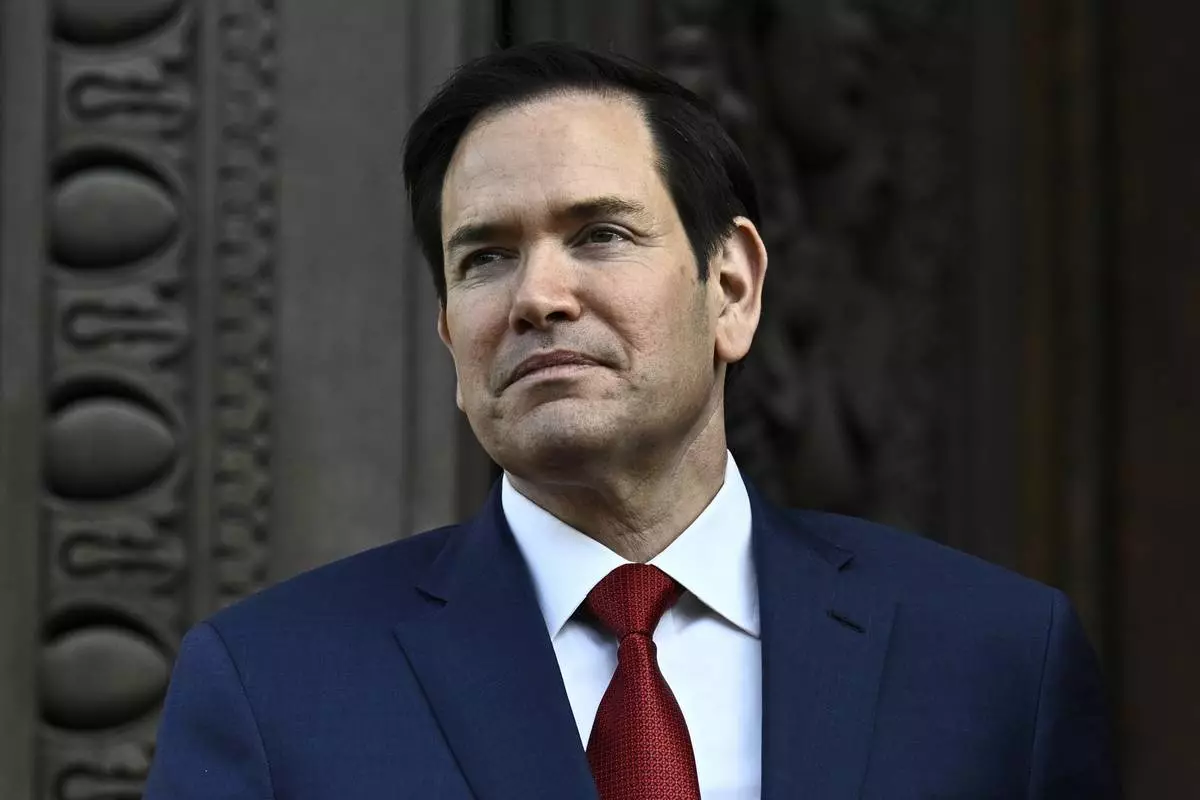
US Secretary of State Marco Rubio looks on upon his arrival at the Quai d'Orsay, France's Minister of Foreign Affairs before a bilateral meeting with his French counterpart Jean-Noel Barrot in Paris Thursday, April 17, 2025. (Julien de Rosa, Pool via AP)
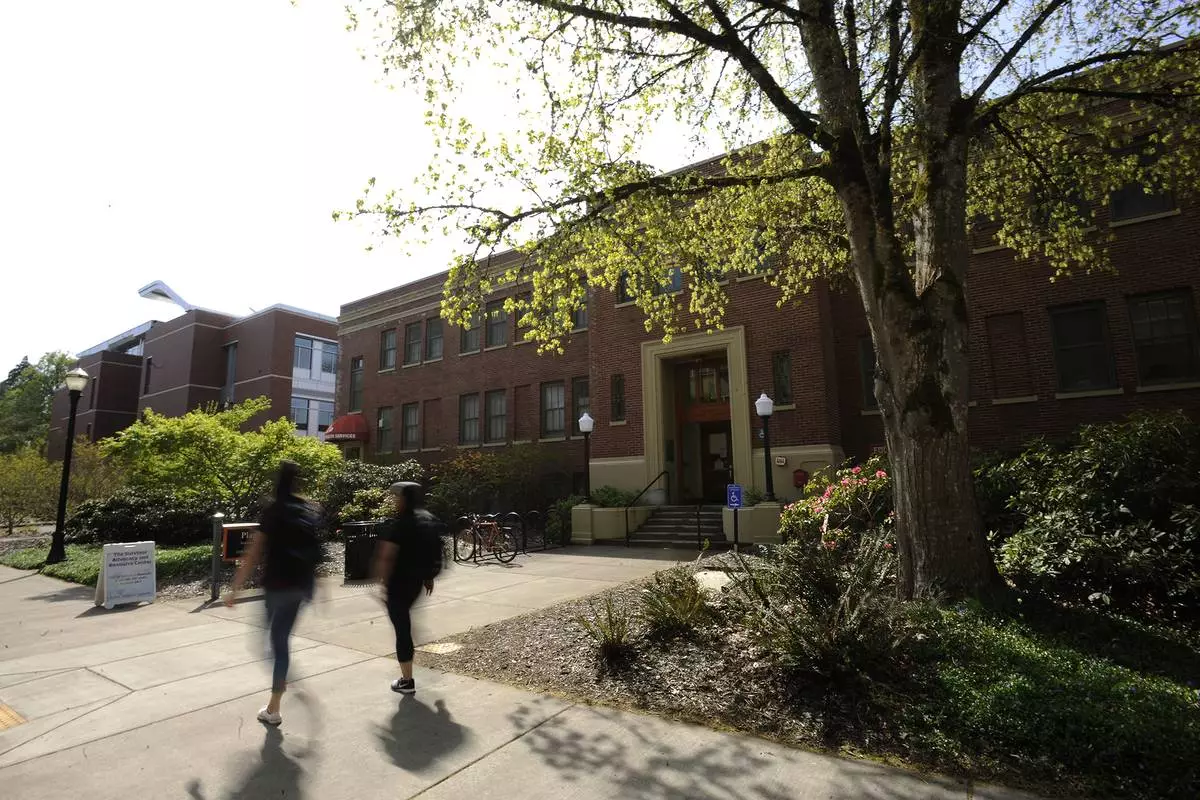
FILE - Oregon State University students walk past the Student Health Services building in Corvallis, Ore., in April 2016. (Anibal Ortiz/The Corvallis Gazette-Times via AP)
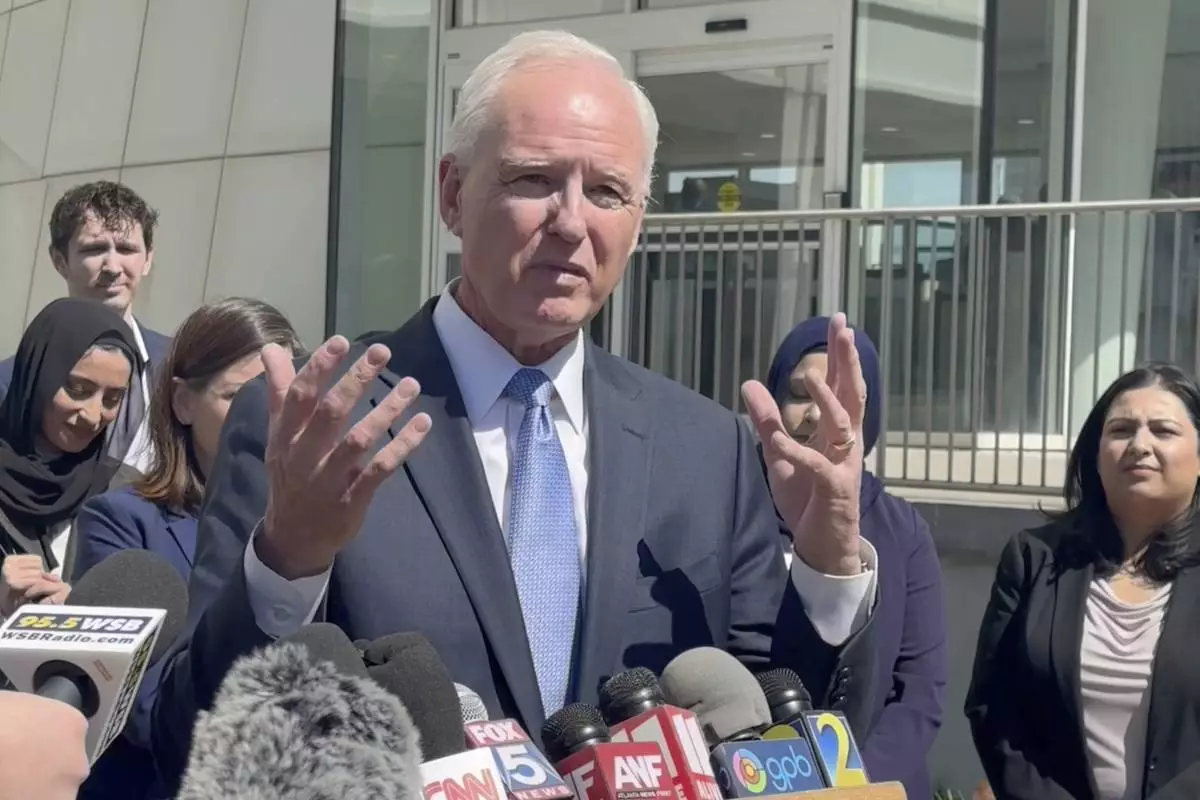
In this image taken from video, immigration lawyer Charles Kuck speaks to reporters outside a federal courthouse in Atlanta, on April 17, 2025. (AP Photo/Kate Brumback)
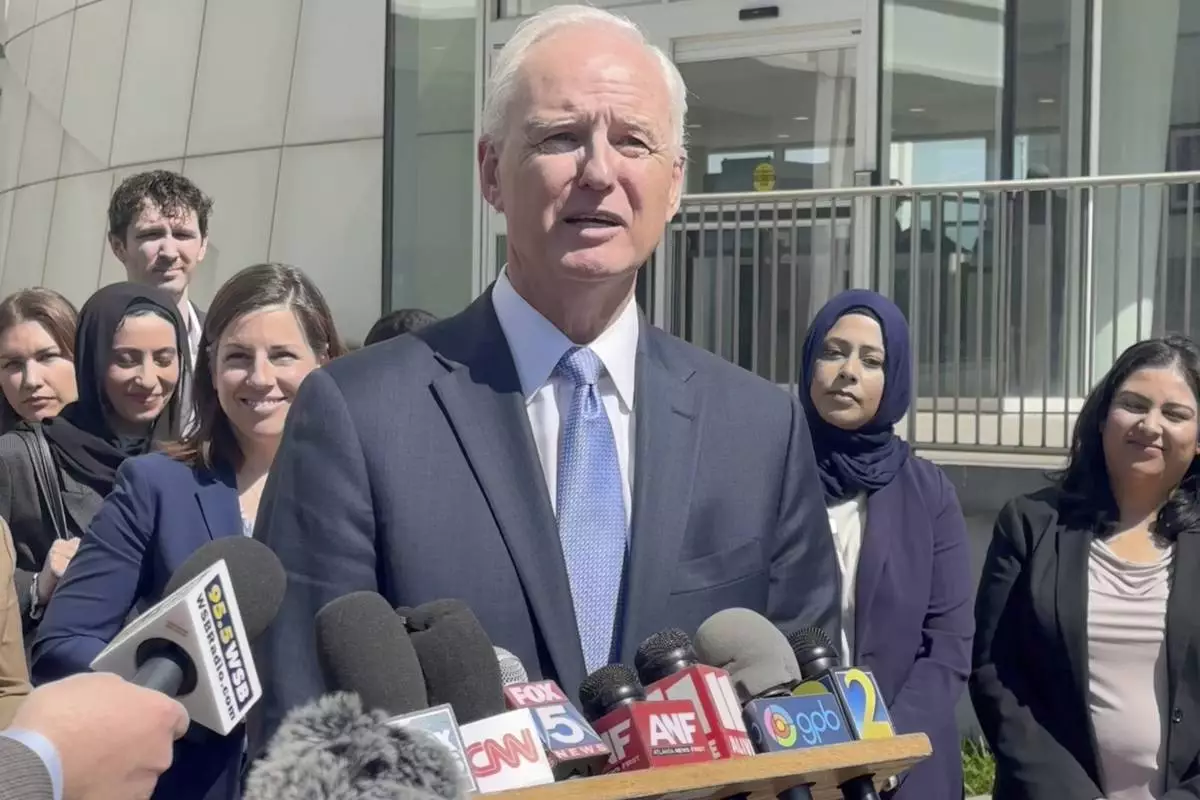
In this image taken from video, immigration lawyer Charles Kuck speaks to reporters outside a federal courthouse in Atlanta, on April 17, 2025. (AP Photo/Kate Brumback)


